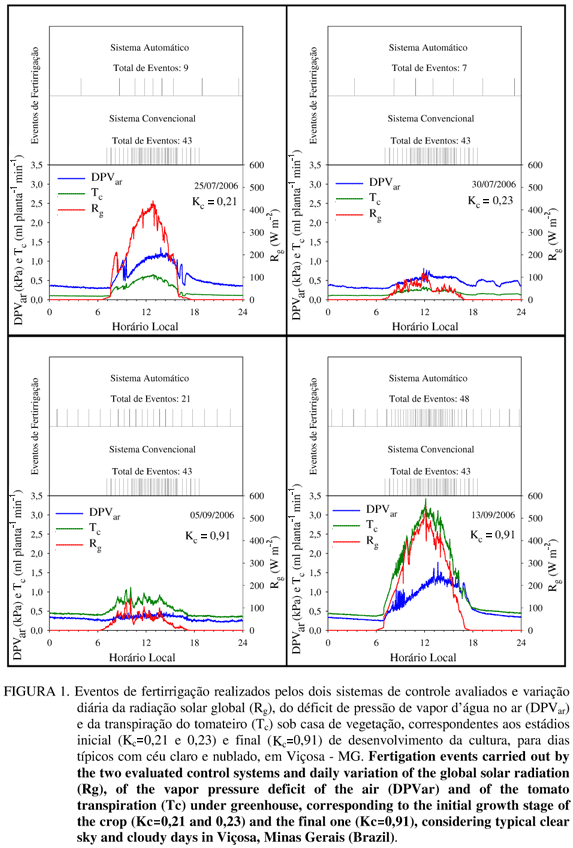The objective of this work was to compare the performance of an automatic fertigation control system, for soilless tomato production in sand substrate, as compared to a conventional control system. In the automatic control, fertigation events were established by meteorological conditions in the cultivation environment and crop development stage. In this way, the Penman-Monteith model was utilized as a decision support tool regarding the appropriate frequency for delivering the nutrient solution. In the conventional control system, fertigation intervals remained fixed during the tomato crop cycle. The results demonstrated that the automatic control system attended to the irrigation requirements without affecting crop production, providing important reduction in nutrient solution usage. On the other hand, the conventional control system applied excess irrigation, mainly during the initial crop development period and during cloudy conditions throughout the crop cycle. In the initial growth stage, it was verified that the total volumes of the nutrient solution, applied to tomato plants by the conventional system, exceeded crop water requirements in 1.31 and 1.39 L plant-1 under clear sky and cloudy days, respectively.
Lycopersicon esculentum; hydroponics; nutrient solution; automation


